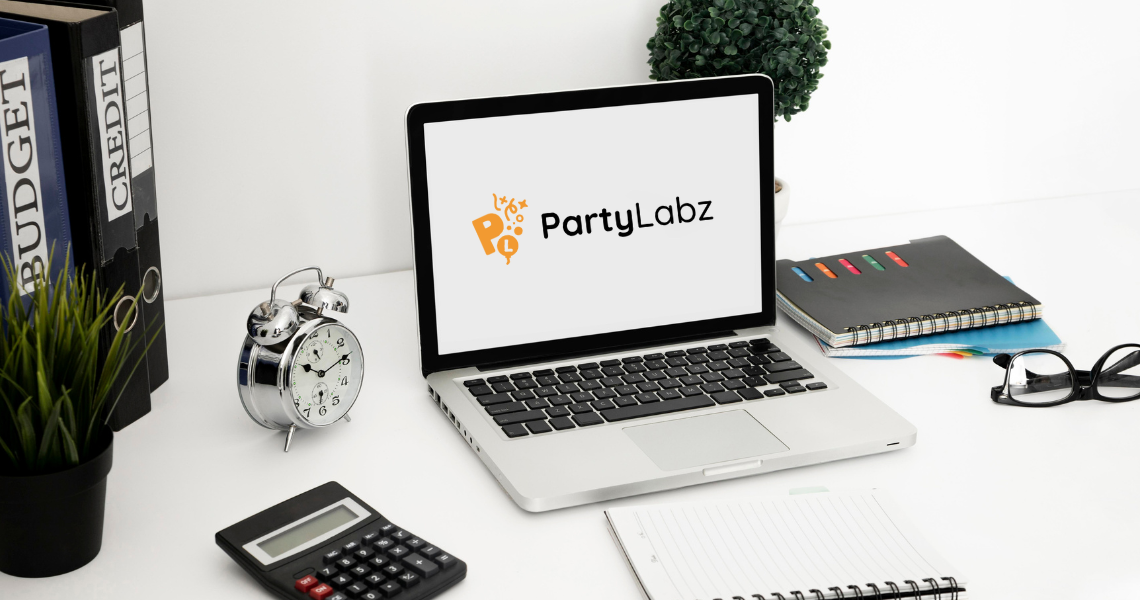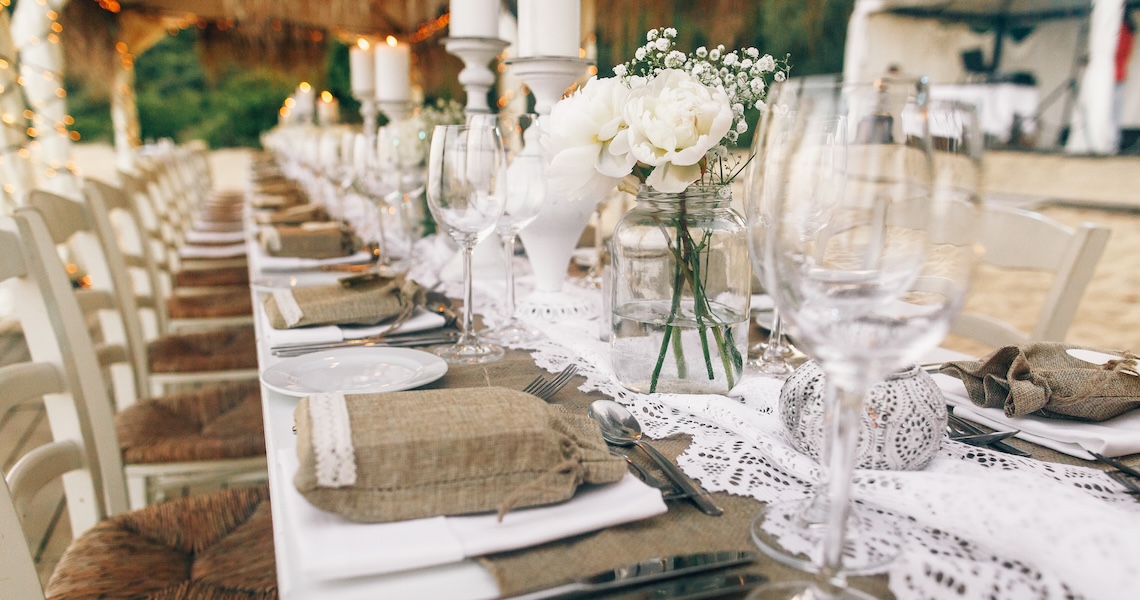Planning an event is exciting, but let's be honest - dealing with the budget can feel overwhelming. Whether you're organizing a corporate conference or planning your dream wedding, understanding how to manage your event finances is crucial for success. Don't worry though - we'll walk through everything you need to know to create and manage your event budget effectively.
Why You Need an Event Budget

Many people dive into event planning focusing on the fun parts - choosing decorations, planning menus, or designing invitations. However, without a solid budget in place, these exciting decisions can quickly lead to financial stress. A well-planned budget acts as your roadmap, helping you make informed decisions throughout the planning process.
Think about it this way: you wouldn't start a road trip without knowing how much gas money you have. Similarly, you shouldn't start planning an event without understanding your financial boundaries. A good budget helps you know exactly how much you can spend, make smart choices about what's really important, and avoid those nasty surprise costs that can pop up along the way.
Understanding the Basics of Event Budgeting

Every event budget has two main components: expenses and potential income. For corporate events, income might include ticket sales or sponsorships. For personal events like weddings, the budget usually focuses primarily on managing expenses within a set amount.
Let's talk about what typically goes into an event budget. Your must-have expenses will include venue rental, food and drinks, and basic decorations. These are the foundations of any event - the elements you absolutely can't skip. Then there are the nice-to-have items, like extra entertainment or premium decorations, which can enhance your event if the budget allows.
The Big Difference: Corporate vs. Personal Events

Corporate events and personal celebrations like weddings might seem similar on the surface - after all, they both involve bringing people together. However, their budgeting approaches can be quite different.
Corporate events often come with more structured budgets and specific business objectives. They typically require professional staffing, technical equipment, and formal venues. The focus is usually on creating a professional atmosphere and achieving business goals, whether that's training employees or impressing clients.
Personal events, on the other hand, have more flexibility in their approach. You might be able to use a backyard instead of a formal venue, recruit friends and family to help, or DIY some elements to save money. These events often focus more on emotional value and personal touches, which can actually help reduce costs in some areas while allowing you to splurge on elements that mean the most to you.
Smart Budgeting Strategies That Really Work

Starting your budget planning early is one of the best moves you can make. Six months ahead isn't too soon - this gives you time to research costs, get multiple quotes, and take advantage of early-bird discounts. Remember, some popular venues and vendors book up a year or more in advance!
When setting up your budget, start with your total available amount and work backward. Be realistic about what you can afford, and always include a buffer of 15-20% for unexpected expenses. Trust us - these always come up, whether it's a sudden price increase from a vendor or a last-minute addition to make your event perfect.
One common mistake is forgetting about hidden costs. Service fees, delivery charges, setup fees, insurance, and gratuities can add up quickly. Make sure to ask vendors about ALL potential charges upfront, and get everything in writing. This helps avoid unpleasant surprises later.
Making Event Budgeting Easier with PartyLabz

Managing an event budget doesn't have to be complicated. PartyLabz offers a comprehensive set of tools designed to make event planning and budgeting more straightforward. The platform's budget tool is specifically designed to work alongside your event planning, allowing you and your co-hosts to collaborate effectively on financial management.
When you create an event on PartyLabz, you'll have access to a budget planning feature that helps you organize your expenses by category. You and your co-hosts can manually enter and track all payments related to different budget items, ensuring everyone stays on the same page. This shared access is particularly valuable when multiple people are involved in the planning process - no more confusion about who paid for what!
The platform's AI assistant can help you create a customized budget template based on your specific event type and circumstances. Whether you're planning a corporate conference, a wedding, or a birthday party, the AI will suggest relevant budget categories and typical cost ranges to consider.
Real-World Budget Breakdowns

Understanding how to distribute your budget across different categories can be one of the trickiest parts of event planning. Let's look at some typical budget breakdowns for various events. Remember, these are general guidelines - your specific event might need different allocations based on your priorities and local costs.
Corporate Event Examples

Professional Conference (3-day event)
-
Venue and Equipment: 30%
-
Conference center rental
-
Audio-visual equipment
-
Stage and seating setup
-
Internet connectivity
-
Food and Beverage: 25%
-
Morning and afternoon refreshments
-
Lunch for three days
-
Welcome reception
-
Networking dinner
-
Speakers and Programming: 20%
-
Keynote speakers
-
Session presenters
-
Workshop materials
-
Marketing and Registration: 15%
-
Event website
-
Email campaigns
-
Registration materials
-
Mobile app
-
Miscellaneous: 10%
-
Staff
-
Insurance
-
Emergency fund
-
Unexpected costs
Trade Show (2-day event)
-
Exhibition Space and Setup: 35%
-
Hall rental
-
Booth construction
-
Lighting and power
-
Signage
-
Marketing and Promotion: 25%
-
Pre-show advertising
-
Promotional materials
-
Lead capture technology
-
Social media campaigns
-
Staffing: 20%
-
Booth staff
-
Event coordinators
-
Security
-
Food and Beverage: 10%
-
Staff meals
-
VIP client hospitality
-
Refreshments
-
Miscellaneous: 10%
-
Insurance
-
Transportation
-
Emergency fund
Personal Event Examples

Wedding (100 guests)
-
Reception: 40%
-
Venue rental
-
Catering and bar service
-
Tables, chairs, linens
-
Lighting
-
Ceremony: 5%
-
Venue fee
-
Officiant
-
Ceremony decorations
-
Attire and Beauty: 15%
-
Wedding dress/suit
-
Accessories
-
Hair and makeup
-
Wedding party attire
-
Entertainment and Photo/Video: 15%
-
DJ or band
-
Photographer
-
Videographer
-
Flowers and Decorations: 10%
-
Bouquets
-
Centerpieces
-
General decor
-
Stationery and Favors: 5%
-
Invitations
-
Programs
-
Place cards
-
Guest favors
-
Miscellaneous: 10%
-
Transportation
-
Wedding rings
-
Marriage license
-
Emergency fund
Milestone Anniversary Party (50 guests)
-
Venue and Catering: 50%
-
Restaurant or venue rental
-
Food and beverages
-
Service staff
-
Basic decorations
-
Entertainment: 15%
-
Music
-
Special presentations
-
Activities or games
-
Photography: 10%
-
Professional photographer
-
Photo booth
-
Decorations and Flowers: 15%
-
Centerpieces
-
Special signage
-
Balloons or lighting
-
Miscellaneous: 10%
-
Invitations
-
Party favors
-
Emergency fund
When using PartyLabz to plan your event budget, the AI assistant can help you create a customized breakdown based on these typical distributions, but adjusted for your specific needs, location, and preferences. You can then easily track expenses within each category as you and your co-hosts make purchases and payments.
A few important notes about these breakdowns
-
Regional Variations: These percentages can vary significantly depending on your location. For example, venue costs in major cities might take up a larger portion of your budget than in smaller towns.
-
Seasonal Factors: The time of year can greatly impact certain categories. Winter weddings might need to allocate more for indoor venues, while summer events might need extra for cooling and weather contingencies.
-
Guest Count Impact: The number of attendees can shift these percentages considerably. Larger events often see economies of scale in some areas (like entertainment) but increased costs in others (like catering).
-
Flexibility Needs: Always build in some flexibility to move funds between categories as needed. You might find great deals in some areas and unexpected costs in others.
Final Thoughts on Successful Event Budgeting
Remember, a good budget isn't about limiting your event's potential - it's about making smart decisions that allow you to create the best possible experience within your means. Stay flexible and be ready to adjust your plans as needed. Sometimes the most memorable events happen when creative solutions are born from budget constraints!
Keep detailed records of all your expenses and vendor communications. This not only helps you stay organized for your current event but also provides valuable reference information for future planning. Make notes about what worked well and what you might do differently next time.
Most importantly, don't let budget planning overwhelm you. With the right tools and approach, you can create an amazing event that stays within your financial comfort zone. PartyLabz is here to help you every step of the way, from initial budget planning through final execution.
Ready to start planning your event budget? Sign up with PartyLabz today, and let our tools and AI assistance help you create a realistic, workable budget for your special event!
Advertisement
Do you find content on this page helpful?